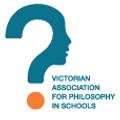Philosophy in Schools Readings

Maughn Rollins Gregory - Charles Peirce and the Community of Philosophical Inquiry
Maughn Rollings Gregory, who will be one of the keynotes at the FAPSA Conference in October at the University of Melbourne, presents this article on Charles Peirce and the Community of Philosophical Inquiry:
Since the American philosopher Charles Sanders Peirce (1839-1914) originated the idea of a ‘community of inquiry’ to describe and promote the norms of scientific inquiry, that idea has been used to characterize a wide variety of educational programs, academic disciplines, and institutional, governmental, and political practices. The first purpose of this essay is to establish that the precise phrase ‘community of inquiry’—which does not occur in Peirce’s writings—was coined in 1978 by Matthew Lipman (1923-2010) and Ann Margaret Sharp (1942-2010), who were also the first to adapt the idea to an educational program, namely, philosophy for children.
Many contemporary scholars who use the phrase ‘community of inquiry’ donot mention Peirce. Some (particularly those writing on education) attribute the idea to John Dewey; few acknowledge Lipman and Sharp. Of those who do attribute the notion of a community of inquiry to Peirce, most—including Lipman and Sharp—do not offer any detailed account of which aspects of his thinking are relevant to their projects. The second purpose of this essay, therefore, is to provide a summary of what Peirce meant by the idea—how he conceived of community in relation to inquiry—by explaining what I take to be the five most important elements of his theory of inquiry and three different roles of a community in relation to that theory. I hope to encourage scholars who have reason to use the idea of a community of inquiry to more carefully considerwhich aspects of Peirce’s thought we do and do not employ, and to consult Peirce’s writings in doing so.
